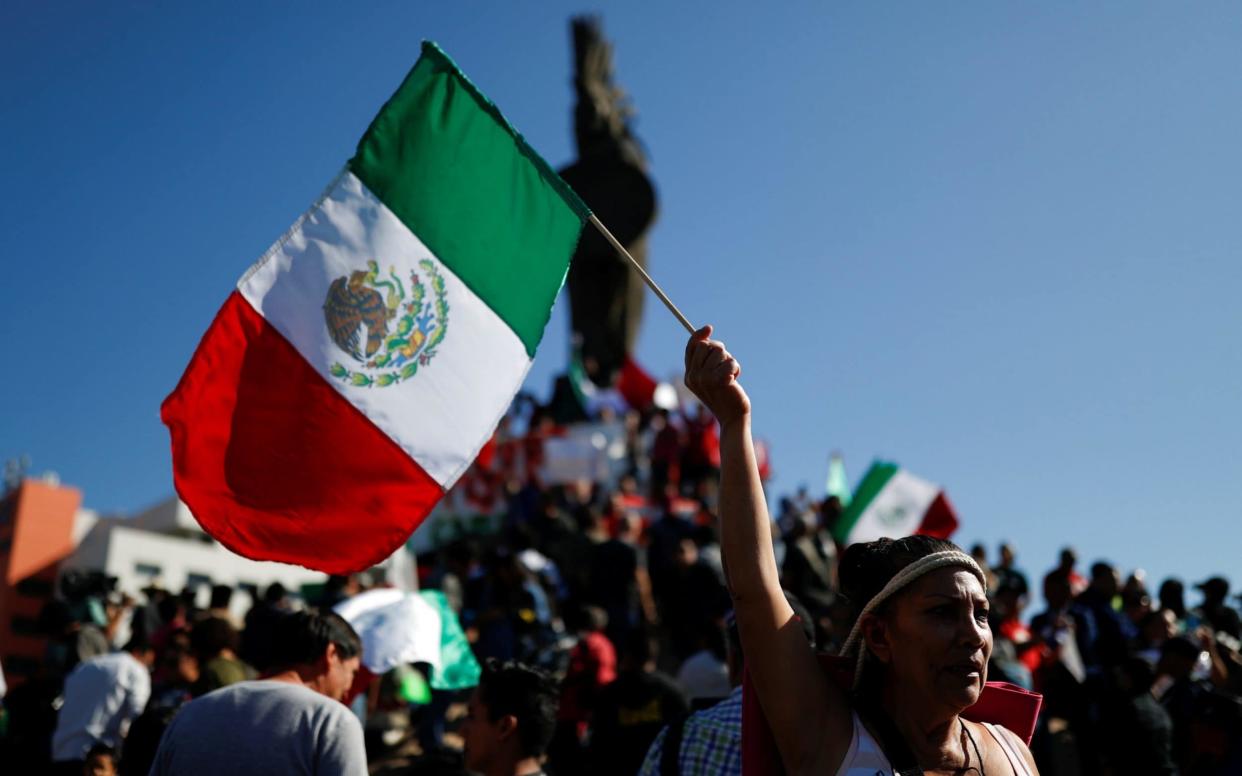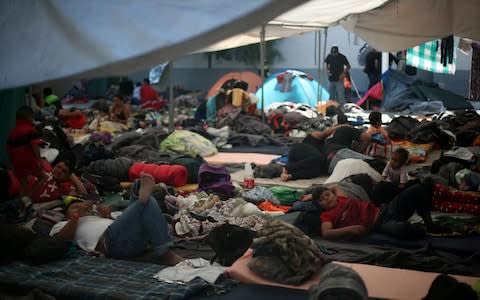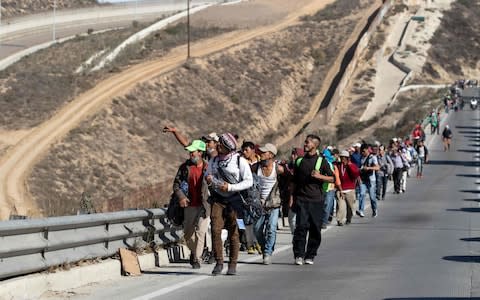Tijuana border crossing shut as Mexicans protest against arrival of migrant caravan

The United States closed its busiest border crossing with Mexico for several hours on Monday, following a day of protests in the city of Tijuana against the arrival of the migrant “caravan”.
Queues at the Tijuana crossing stretched back for several miles as traffic into the US was blocked while new security barriers were installed, causing anger among the 110,000 people who enter the US every day.
An estimated 3,000 migrants have arrived in recent days in Tijuana, which sprawls into San Diego in southern California.
On Sunday several hundred Tijuana residents took to the streets to protest against the caravan, which set out from Honduras on October 13.

While many in Tijuana are sympathetic to the migrants' plight and trying to assist, with a local priest handing out donated clothes at the weekend, some locals have shouted insults, hurled rocks and even thrown punches at them.
Carlos Padilla, 57, a migrant from Progreso, Honduras, told The San Diego Union Tribune that a Tijuana resident shouted “migrants are pigs” as he passed on the street recently.
“We didn't come here to cause problems, we came here with love and with the intention to ask for asylum,” he said. “But they treat us like animals here.”
The cold reception contrasts sharply with the warmth that accompanied the migrants in southern Mexico, where residents of small towns greeted them with hot food, campsites and even live music.
“Out! Out!” they chanted, demanding that the caravan be diverted and worried about the impact of many hundreds of migrants and asylum seekers stuck in their city for months.

US border inspectors are currently processing only about 100 asylum claims a day at Tijuana's main crossing to San Diego, and Juan Manuel Gastelum, mayor of Tijuana, said he estimates the migrants will remain in his city for at least six months as claims are processed.
He has called the migrants' arrival an "avalanche" that the city is ill-prepared to handle, and has appealed to the federal government – which has already flown in food and blankets - for more assistance to cope with the influx.
“Some of them are a bunch of bums, smoking marijuana in the street, and attacking our families in Playas de Tijuana,” the mayor said last week, on Mexican television. “Who is leading them?”
Tijuana officials have converted a municipal gymnasium to hold 3,000 migrants, and the city's privately run shelters have a maximum capacity of 700.
Alden Rivera, the Honduran ambassador to Mexico, visited the shelters at the weekend and appealed once again for the migrants to return to Honduras – a country with a murder rate around the same as Detroit and New Orleans.

He said 1,800 have been convinced so far to return to his country. A further 2,697 Central American migrants have requested asylum in Mexico, the Mexican interior ministry said, under a program that the country launched in haste on October 26 to speed the issuing of credentials needed to live, work and study in southern Mexico.
Donald Trump, the US president, who sought to make the caravan a campaign issue in the midterm elections, voiced his support for the mayor of Tijuana on Sunday.
He wrote on Twitter that, like Tijuana, "the U.S. is ill-prepared for this invasion, and will not stand for it. They are causing crime and big problems in Mexico. Go home!"

